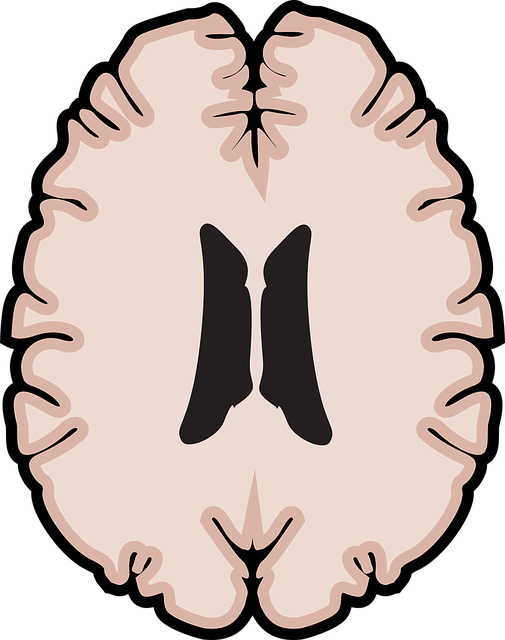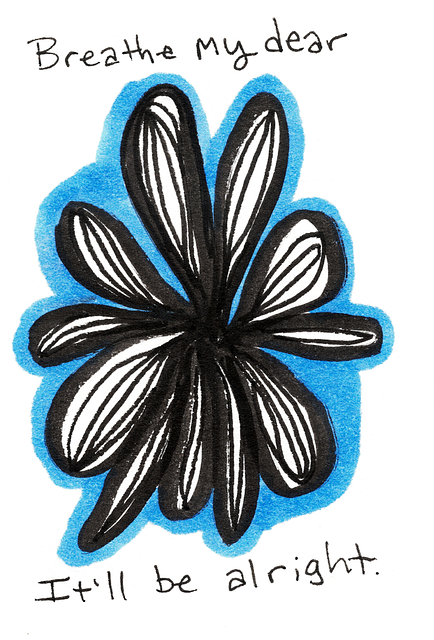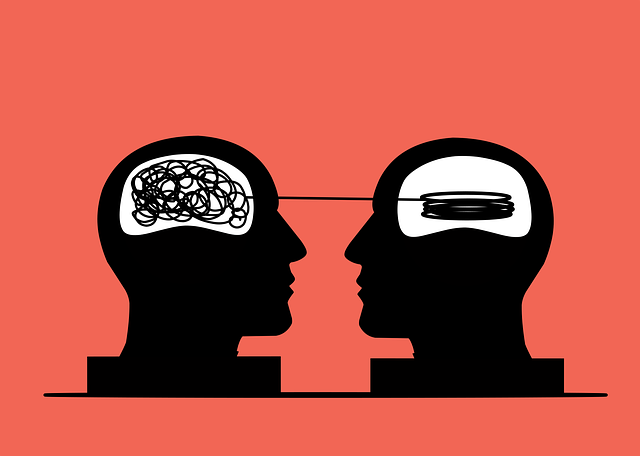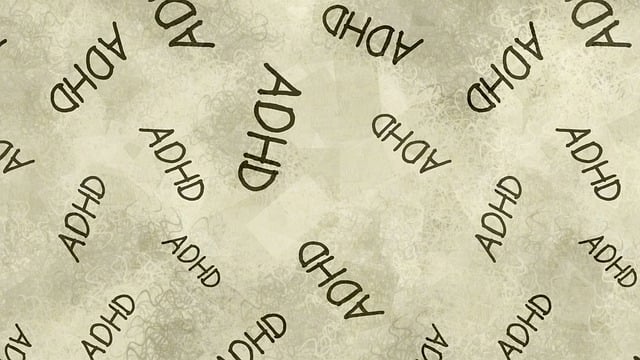In diverse Colorado Springs, cultural competency is crucial in healthcare, especially for effective divorce therapy. Recognizing and respecting cultural differences improves patient care by addressing biases, fostering trust, and tailoring treatment plans. Integrating cultural awareness into therapy sessions creates safer spaces for clients from various ethnic backgrounds, benefiting both patients and practitioners. Holistic training programs should teach clinical skills and cultural competency, using interactive methods to manage complex dynamics, reduce therapist burnout, and improve community well-being in Colorado Springs divorce therapy settings.
In today’s diverse society, cultural competency among healthcare providers is no longer an option but a necessity. This article explores the evolving landscape of healthcare and its urgent need for inclusive practices, especially in settings like Colorado Springs Divorce Therapy. We delve into the positive impact of cultural competency training on patient care and outcomes, offering practical insights and case studies to guide effective implementation. By understanding and embracing diverse cultural perspectives, healthcare providers can enhance their practice and foster better patient relationships.
- Understanding Cultural Competency in Healthcare: A Necessity in Modern Practice
- The Impact of Cultural Inclusivity on Patient Care and Outcomes
- Designing Effective Training Programs for Healthcare Providers
- Case Studies: Successful Implementation of Cultural Competency Training in Colorado Springs Divorce Therapy Settings
Understanding Cultural Competency in Healthcare: A Necessity in Modern Practice

In today’s diverse society, cultural competency is no longer a nice-to-have but an absolute necessity in healthcare practices. Understanding and respecting cultural differences can significantly enhance patient care and outcomes, especially in urban centers like Colorado Springs where a wide array of backgrounds coexist. Healthcare providers who are culturally competent are better equipped to address the unique needs and concerns of their patients, fostering trust and improving access to care.
This competency involves recognizing and appreciating diverse belief systems, values, behaviors, and communication styles. It also entails addressing biases and stereotypes that can impact clinical interactions. By integrating cultural awareness into therapy sessions, for instance, Colorado Springs divorce therapy practitioners can create safer spaces for clients from various ethnic and cultural backgrounds. This approach not only prevents burnout among healthcare professionals but also promotes mental wellness by ensuring every patient receives personalized support tailored to their cultural context. Incorporating mental wellness journaling exercises guidance can further enhance this process, encouraging self-reflection and better understanding of one’s own cultural influences in the therapeutic setting.
The Impact of Cultural Inclusivity on Patient Care and Outcomes

In today’s diverse healthcare landscape, cultural inclusivity is no longer an option but a necessity. Incorporating cultural competency training in healthcare provider education has a profound impact on patient care and outcomes. When healthcare professionals understand and appreciate the unique cultural backgrounds of their patients—be it racial, ethnic, or religious—they can deliver more personalized and effective treatment plans. This understanding fosters trust, enhances communication, and encourages patients to openly discuss sensitive issues like anxiety and mental health struggles, potentially leading to better health outcomes in Colorado Springs divorce therapy settings.
Moreover, cultural competency training equips healthcare providers with burnout prevention strategies for themselves, as they learn to manage their own emotional intelligence effectively. This is crucial because caring for others’ well-being while neglecting one’s own can lead to professional exhaustion. By integrating cultural awareness and emotional intelligence into practice, healthcare providers in Colorado Springs can create a more supportive environment, offering anxiety relief to both patients and themselves through enhanced care delivery and stronger patient-provider relationships.
Designing Effective Training Programs for Healthcare Providers

Effective training programs for healthcare providers, including those offering Colorado Springs divorce therapy, should be designed with a holistic approach that addresses both clinical skills and cultural competency. These programs must cater to the unique needs of diverse patient populations, ensuring that mental health professionals are equipped to provide culturally sensitive care. A well-rounded training curriculum should incorporate interactive workshops, case studies reflecting real-life scenarios, and role-playing exercises that challenge participants to navigate complex interpersonal dynamics.
Incorporating topics such as risk management planning for mental health professionals, mood management strategies, and mental illness stigma reduction efforts into the training is essential. These elements empower healthcare providers with the tools to manage challenging situations while fostering an inclusive environment that respects diverse cultural backgrounds and promotes effective communication.
Case Studies: Successful Implementation of Cultural Competency Training in Colorado Springs Divorce Therapy Settings

In Colorado Springs Divorce Therapy settings, cultural competency training has been successfully implemented, transforming care delivery and client outcomes. These programs focus on equipping therapists with the skills to navigate diverse cultural backgrounds, beliefs, and values among their clients. By fostering an understanding of unconscious biases and promoting empathy, these initiatives enhance the therapeutic relationship, leading to more effective treatment plans. For instance, a local mental health education program designed specifically for Colorado Springs Divorce Therapy settings has shown promising results, with participants reporting improved cultural sensitivity and reduced burnout rates.
The successful integration of cultural competency training in these settings extends beyond individual therapy sessions. It influences the broader public awareness campaigns development, encouraging more inclusive practices and promoting better mental health support for all residents of Colorado Springs. Through case studies and ongoing research, therapists are learning how to tailor their approaches, ensuring that each client receives care that respects their unique cultural identities, thereby reducing potential barriers to treatment and enhancing overall well-being in the community.
Cultural competency training is no longer a choice but an essential component of modern healthcare practice, especially in diverse communities like Colorado Springs. As demonstrated by successful case studies in local divorce therapy settings, investing in education that promotes understanding and respect for different cultures significantly enhances patient care and outcomes. By implementing well-designed training programs, healthcare providers can create inclusive environments, improve communication, and ultimately foster better relationships with patients from various backgrounds, ensuring equitable access to quality care for all Coloradans.














